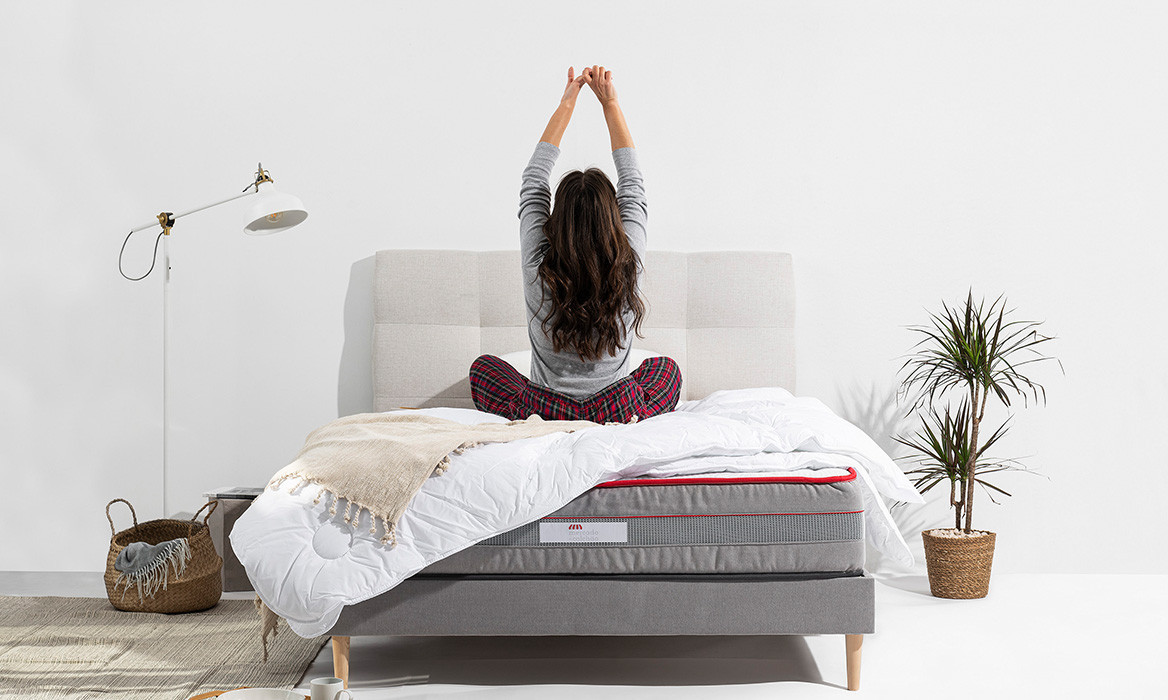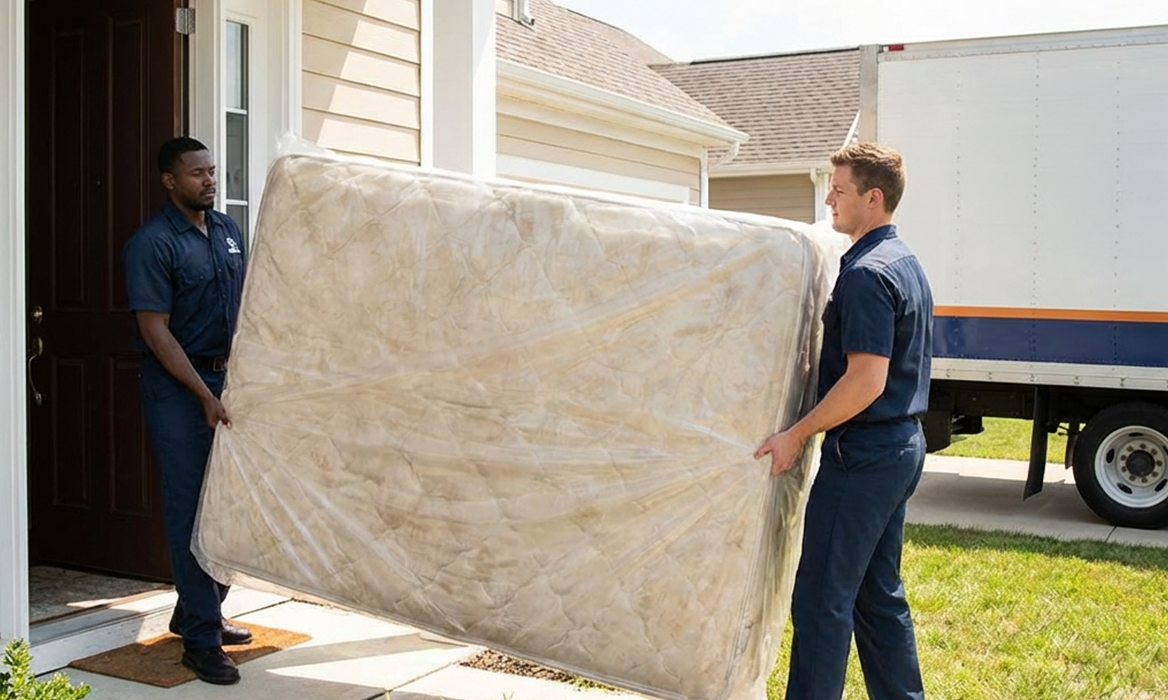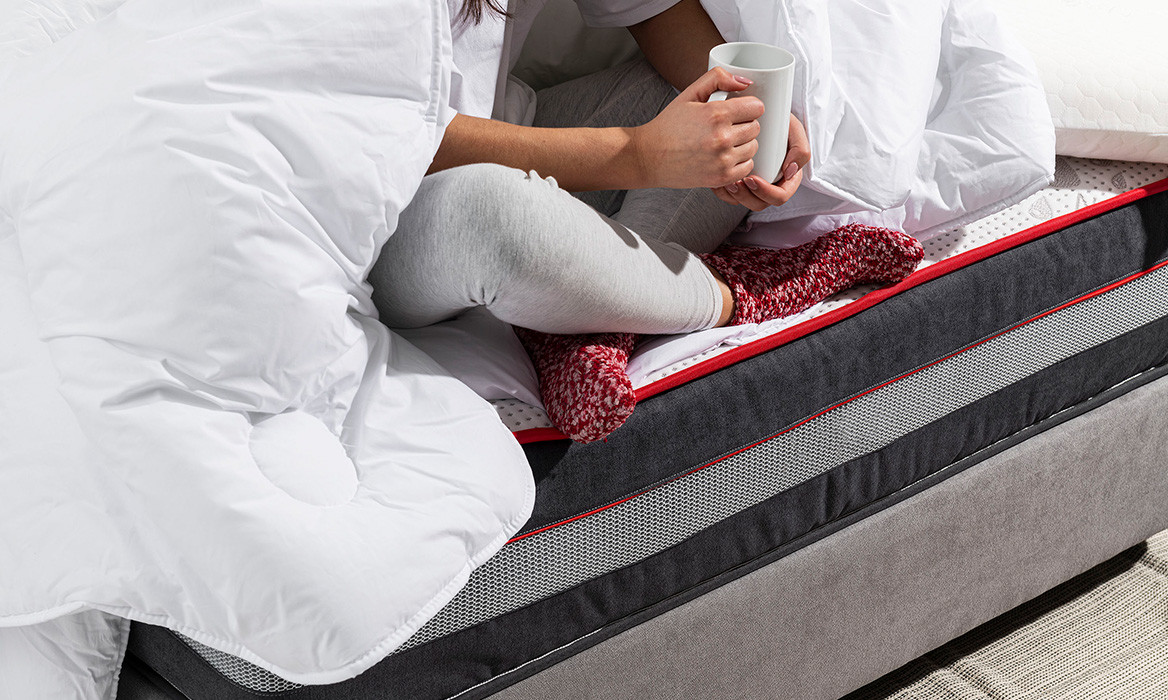Published by Mercado do Mattress on 17th Sep 2025
Stress and Sleep: the Role of Cortisol in Rest
The importance of sleep goes beyond physical rest: it is directly linked to memory, mental health and hormonal balance.
Sleeping well is not just a vital necessity. At times of increased stress, many people experience difficulty falling asleep, insomnia or poor rest. The link between stress and sleep is direct: when the mind can't switch off, the body suffers and the quality of sleep drops dramatically.
In this article, we explore how natural cortisol (the stress hormone) affects relaxation and the importance of sleeping in the right environment, with the right mattress. mattress mattress, to avoid the consequences of not sleeping.
Stress and sleep: a cycle that's hard to break
The effects of prolonged stress are directly reflected in the quality of sleep. Stress activates the body's alert system, increasing heart rate, muscle tension and cortisol levels. Although this is useful in specific situations, when it remains high it compromises rest.
Sleep difficulties linked to stress
- Taking longer to fall asleep;
- Frequent nocturnal awakenings;
- Sleep deprivation and daytime fatigue;
- Anxiety that reinforces the cycle between stress and sleep.
Consequences of lack of sleep
The consequences of not sleeping affect both physical health and quality of life.
Most common consequences:
- Irritability and difficulty concentrating;
- Higher cardiovascular risk;
- Weakened immune system;
- Metabolic changes that favor weight gain.
In addition, poor sleep increases vulnerability to stress and compromises quality of life.
Cortisol and muscle relaxation
Cortisol follows a natural cycle: it rises in the morning to provide energy and should fall at night to prepare the body for rest. When stress keeps the levels of this hormone high, falling asleep becomes more difficult.
Excess cortisol causes:
- Constant muscle tension;
- Blocking melatonin production;
- Shallow, unrefreshing sleep.
A mattress mattress helps reduce tension, corrects posture and facilitates muscle relaxation, creating the ideal conditions for restful sleep.
Tips for sleeping better in times of stress
If you're looking for a tip to sleep better, start with:
- Create a fixed sleep routine.
- Avoid screens before bed.
- Practice breathing or relaxation techniques.
- Reduce caffeine and alcohol in the evening.
- Betting on a comfortable resting environment, with quality pillows.
Frequently asked questions about stress and sleep
What causes sleeplessness?
Lack of sleep can be caused by stress, anxiety, high cortisol levels, excessive caffeine consumption or poor sleeping conditions, such as old mattresses that are not suited to the curvature of the body.
What do you do when you can't sleep?
If you can't sleep, avoid looking at your cell phone or television. Get up, do something relaxing like reading or listening to quiet music, and only go back to bed when you feel sleepy.
How to treat lack of sleep?
Treating lack of sleep involves improving sleep hygiene habits, reducing stress, keeping regular hours and ensuring that you sleep on a mattress with adequate support. In persistent cases, you should seek medical advice.
How to stop feeling sleepy at work?
When sleepiness at work is frequent, it can be a sign of sleep deprivation. A short break to stretch, drink water or expose yourself to natural light helps, but the most important thing is to improve your healthy sleep routine during the night.
Are sleepiness and irritability linked?
Yes. Sleep deprivation reduces stress tolerance and affects emotional regulation, causing irritability, tiredness and lack of concentration throughout the day.
At Mercado do Mattress, we believe that quality sleep starts with the right comfort and support. With a complete range of pillows and accessories to beds and headboardswe help transform your rest.









